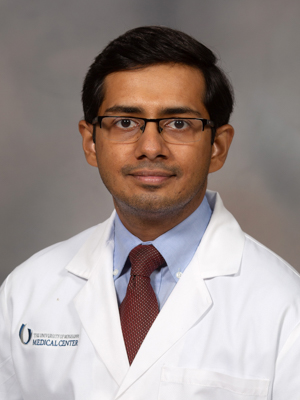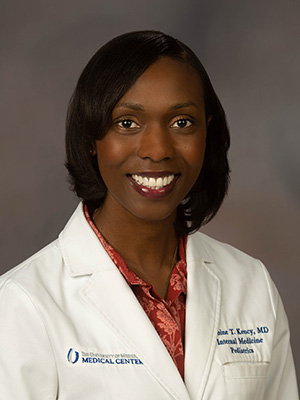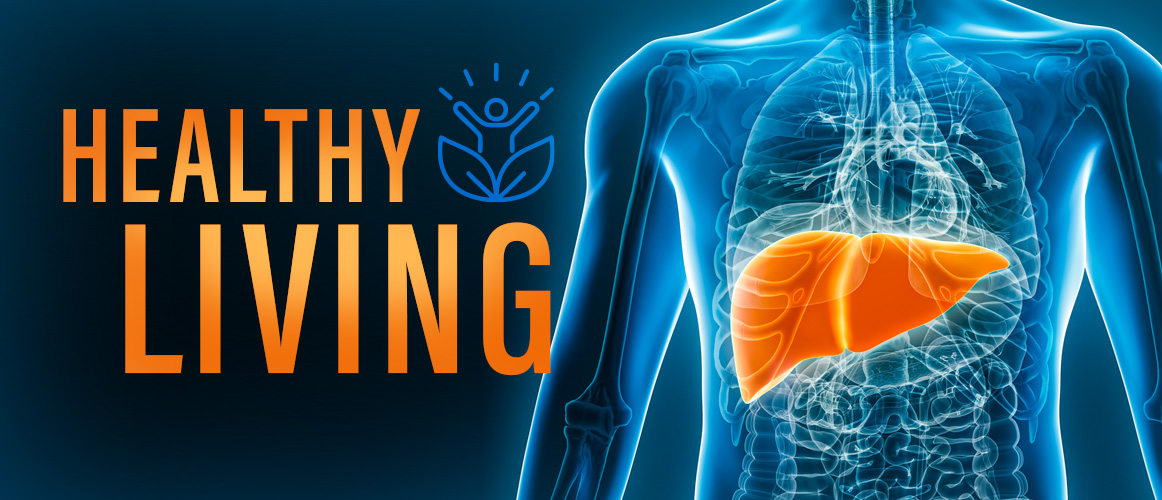Liver disease on the rise but can be reversed in early stages: UMMC experts
When it comes to liver health, experts from the University of Mississippi Medical Center have good news and bad news.
First, the bad: metabolic dysfunction-associated steatotic liver disease (MASLD), previously known as nonalcoholic fatty liver disease, has been on the rise in the U.S. It is the second most common cause of liver failure needing transplant overall, and the leading cause for women. According to the Global Regions Data collected between 1990 and 2019, the prevalence of MASLD globally and in North America is around 30%.

The good news is that MASLD can be reversed with lifestyle changes including eating a Mediterranean diet and boosting physical activity, said Dr. Joydeep Chakraborty, associate professor of medicine in the Division of Digestive Diseases and its transplant hepatology area.
“Making a lifestyle change is hard to do, but if you know that it has the potential to reverse MASLD, it can be motivating,” Chakraborty said.
MASLD leaves fatty deposits on the liver. Unchecked, MASLD leads to metabolic-associated steatohepatitis (MASH), which is on track to become a leading indication of liver transplant in the U.S., according to a 2022 study. MAFLD and MASH can also lead to cirrhosis and predispose patients to liver cancer.
Metabolic dysfunction-associated steatotic liver disease has increased by more than 131% from 1988 to 2018, a 2023 report from the Endocrine Society holds. Since the condition can have no early symptoms, it is likely underdiagnosed.
“Almost two-thirds of people with diabetes also have MASLD, and almost half of those with hypertension have MASLD,” he said.

About 100 million Americans have some form of liver disease, said Dr. Jasmine Kency, associate professor of medicine and host of the Mississippi Public Broadcasting radio show “Southern Remedy for Women.”
“The liver is the largest solid organ in the body and performs hundreds of functions,” she said. Among them are these:
- Filtering toxins from the blood
- Making bile, which aids in digestion
- Metabolizing carbohydrates, protein and fats
- Stores sugar that the body can use later as glucose for energy
- Produces substances that help the blood to clot
- Regulates the amount of blood in the body
“The liver is important and does a lot of things for us,” Kency said. “If the liver goes wrong, a lot of other things go wrong, too.”
Chakraborty recommends that anyone with risk factors for MASLD discuss screening for the condition with their primary care physician. The risk factors include:
- Having type 2 diabetes
- Genetics
- Obesity or being overweight with at least one cardiac risk factor, such as high blood pressure
- Persistently elevated liver enzymes
- Insulin resistance
- Hyperlipidemia, or having high levels of fats, especially triglycerides, in the blood
Screening involves blood tests including that for platelet count and liver enzymes and, sometimes, ultrasound of the abdomen with liver stiffness measurement.
Symptoms of the more severe MASH and cirrhosis include:
- An ache in the upper right abdomen
- Extreme fatigue and weakness
- Loss of appetite
- Swollen belly
- Unexpected weight loss
- Yellowing of skin and eyes
Those noticing these symptoms should seek medical attention.
The U.S. Food and Drug Administration approved the first medication for select patients with MASH in March 2024, but it’s recommended to be used in conjunction with diet and exercise.
“We recommend a lifestyle change that is sustainable,” Chakraborty said. “For many people, that is the Mediterranean Diet, which includes complex carbohydrates, lean protein and fruits and vegetables but avoids processed and ultra-processed foods.”
More than 150 minutes of moderate intensity physical activity a week is also recommended, as is minimizing sedentary time.
Some observational studies have shown that drinking coffee can be beneficial for patients with MASLD. “It needs to be black coffee, though,” Chakraborty said. “Coffee with sugar and cream does not offer the same benefits.”
These changes can bring real results to liver patients, Chakraborty said.
“Patients who can lose greater than 7 to 10% of their body weight can reverse MASLD/MASH as well as potentially reverse early scarring of the liver,” he said. “I tell patients that these changes are an investment so that, in 15 to 20 years, I won’t be having a conversation about needing a liver transplant. Instead, they can continue living with their own liver for the rest of their lives.”
The above article appears in CONSULT, UMMC’s monthly e-newsletter sharing news about cutting-edge clinical and health science education advances and innovative biomedical research at the Medical Center and giving you tips and suggestions on how you and the people you love can live a healthier life. Click here and enter your email address to receive CONSULT free of charge. You may cancel at any time.



